
Opinions
16:48, 26-Sep-2018
China's White paper: Can the US win the trade war?
Updated
16:21, 29-Sep-2018
Ken Moak
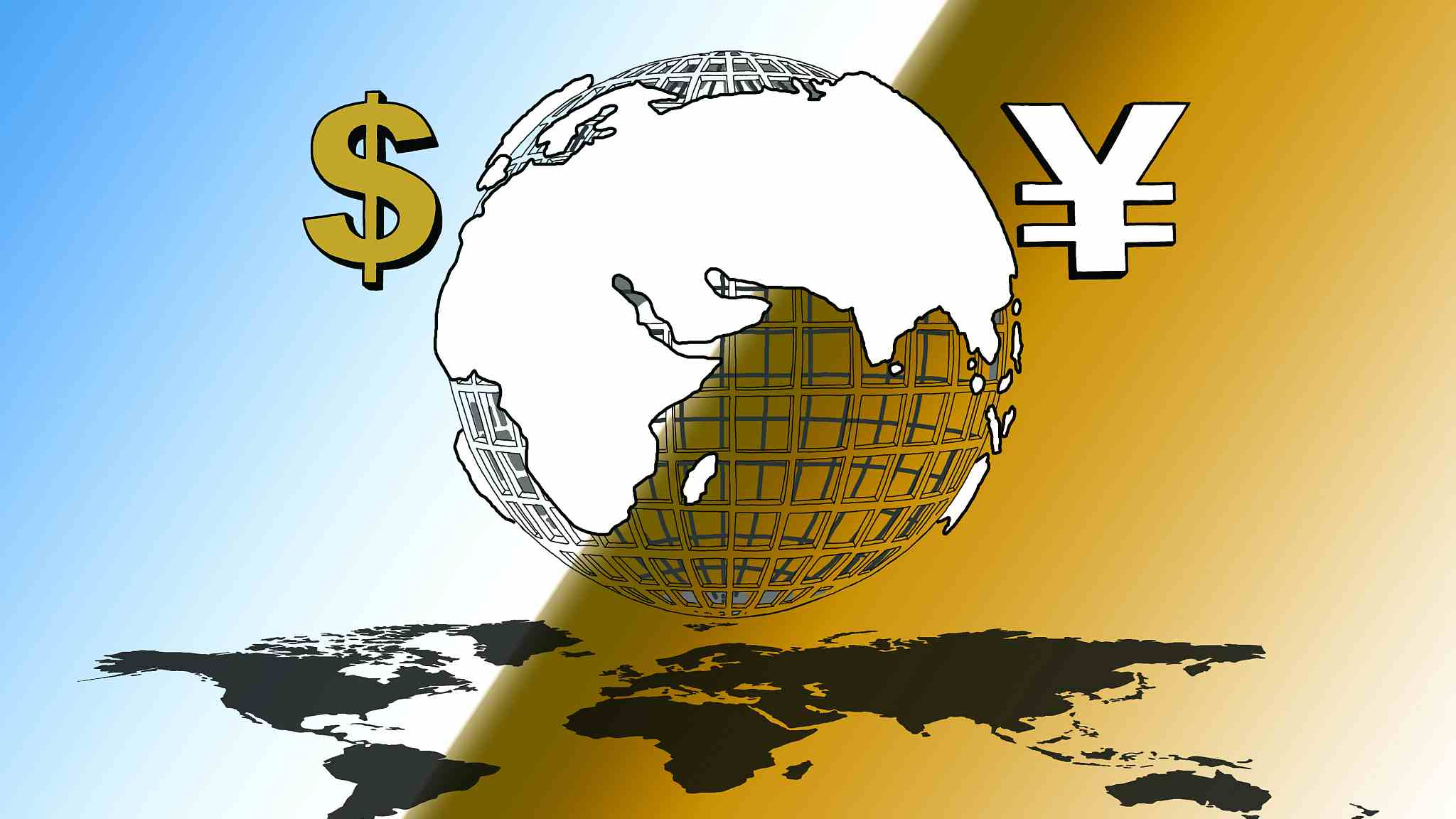
Editor's note: Ken Moak taught economic theory, public policy and globalization at the university level for 33 years. He co-authored a book titled "China's Economic Rise and Its Global Impact" in 2015. The article reflects the author's opinions, and not necessarily the views of CGTN.
China released a "white paper" on the China-US trade war on Monday, explicitly outlining its policy on how to address or end the trade war. It makes clear that China wants to negotiate a settlement, but only under the condition of equality and fairness.
Until then, the white paper states the country will promote globalization, retaliate against US "bullying", continue reforms to make it easier and safer for foreign investors, reduce duties on goods from other trade partners, increase investment and trade with countries that participate in the Belt and Road Initiative, and a host of other strategies to wean away from the US.
How one should interpret the document depends on which side one supports. China critics quickly conclude that it is "feeling the heat", anxious to negotiate a deal to cut losses. But others have a different take, China is not waving the "white flag", but simply being pragmatic, realizing a protracted trade war benefits no one.
Neither interpretation of the white might be irrelevant because Trump is not interested in compromising an end to his trade war, he wants total victory in having China "mend" its "sins", including a stop in pursuing the country's "Made in China 2025" policy, "forcing" US firms to transfer technology to Chinese partners as a condition of doing business and other "misdeeds".
Trump's demands are interesting because the trade war might not be about "unfair" trade practices. It might be about the challenge to US global power and domestic politics.
The trade war is about preventing China from challenging US hegemony
China is the only country that can challenge US global hegemony because its economy, military, and technology are fast catching up to America, thanks to decades of nearly 10 percent annual growth. While the rate has decreased to 6.5 percent since 2014, it still "shines", comparing to the developed economies of less than 2 percent since the 2008 financial crisis.
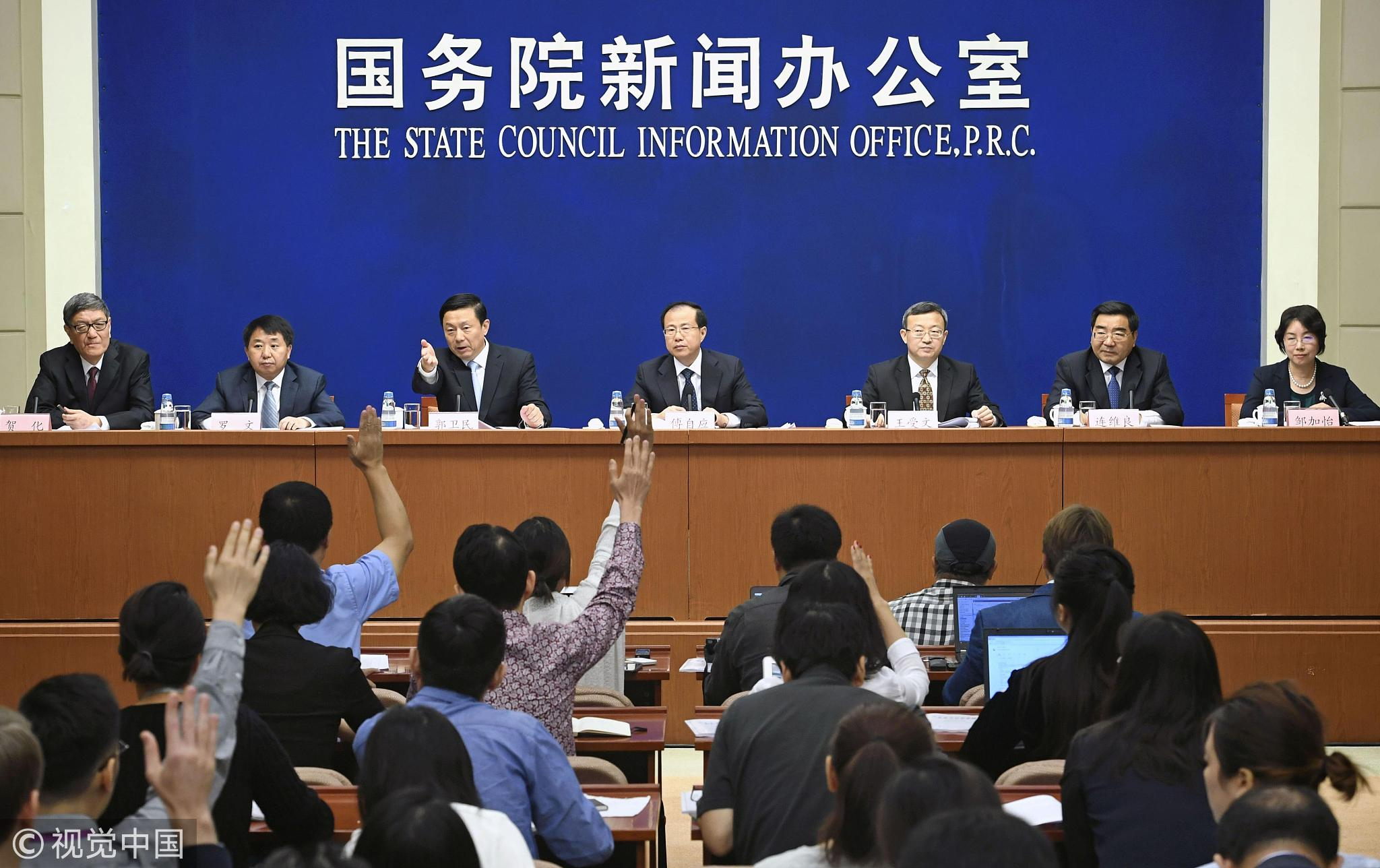
Chinese officials, including Lian Weiliang (2nd from R), vice minister of the State Council's National Development and Reform Commission, hold a press conference in Beijing, September 25, 2018. /VCG Photo.
Chinese officials, including Lian Weiliang (2nd from R), vice minister of the State Council's National Development and Reform Commission, hold a press conference in Beijing, September 25, 2018. /VCG Photo.
What's more, China's technological improvement is advancing at high speed, thanks to increases in education and research and development activities. Spending over two hundred and fifty billion US dollars on R&D in 2017 and over 6 million STEM - science, technology, engineering and mathematics - graduates, China is bound to become an innovation power.
China's growing economic and geopolitical power and technological advancements worry many Americans, fearing that China will someday supplant US world supremacy.
The neoconservatives formed the Project for a New American Century (PNAC) in 1997, propagating US leadership is good for the world, and vowing to prevent any nation from challenging American dominance. The group has since been disbanded, but members such as John Bolton emerged in the Trump Administration as National Security Adviser.
Others such as Robert Lighthizer and Peter Navarro, respectively trade representative and trade czar, are fierce China critics who are determined to prevent China from pursuing its "Made in China 2025" industrial policy of becoming the world's innovation power.
The US Congress is also anti-China, passing the Taiwan Travel Act, National Defense Authorization Act and other legislation in order to "poke" China in the eye.
The US domestic politics
Trump won the US presidency in part because of his anti-China rant, accusing it of "raping America" and promising to impose as much as 45 percent tariff on Chinese goods. Though he appeared to have toned down the anti-China rhetoric at the outset of his presidency, Trump quickly took a "U-turn" and made good on his campaign threats, perhaps to garner support for the Republicans in the coming November congressional midterm election and his bid for re-election in 2020.
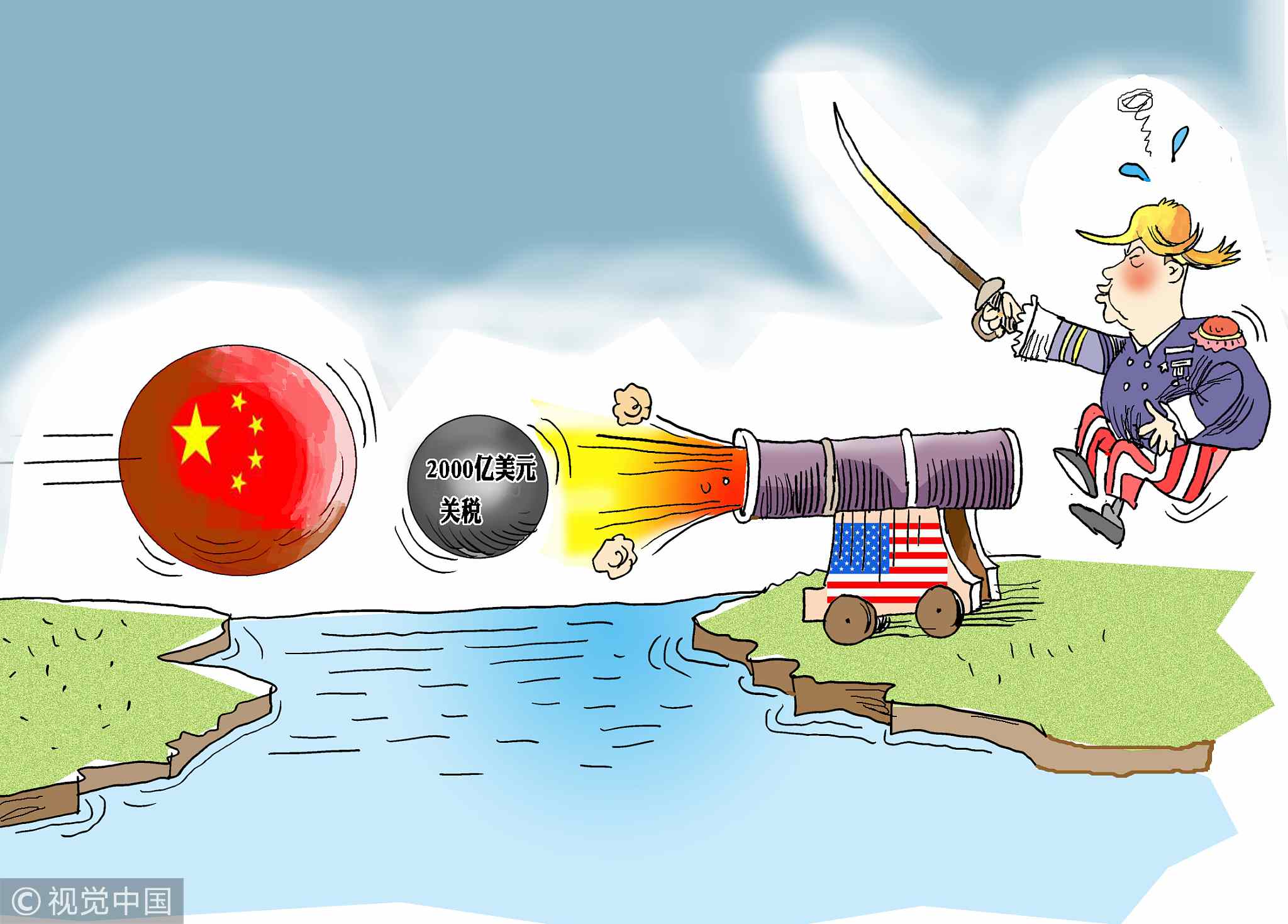
VCG Photo.
VCG Photo.
Trump would unlikely "meet China halfway" to end the trade war because that would be political suicide. His support base would accuse him of "false promises" and the neoconservatives and other anti-China groups would denounce him for "kowtowing" to China.
Can the US win the trade war?
However, Trump might not win (and he probably knows it) the trade war against China for a number of reasons. First, Japan owes its post-war prosperity and security to the US. The US Marshall Plan gave Japan over one billion dollars to rebuild the country. During the Korean War (1950 – 53), the US invested massively in the country, reviving its industries.
Second, the Chinese “unfair” trade practices are exaggerated or manufactured for reasons explained in my past articles.
Third, history supports China's position that protectionism hurt everyone. The US seems to play the same role as it did in the 1930s, passing the Smoot-Hartley Act to block imports.
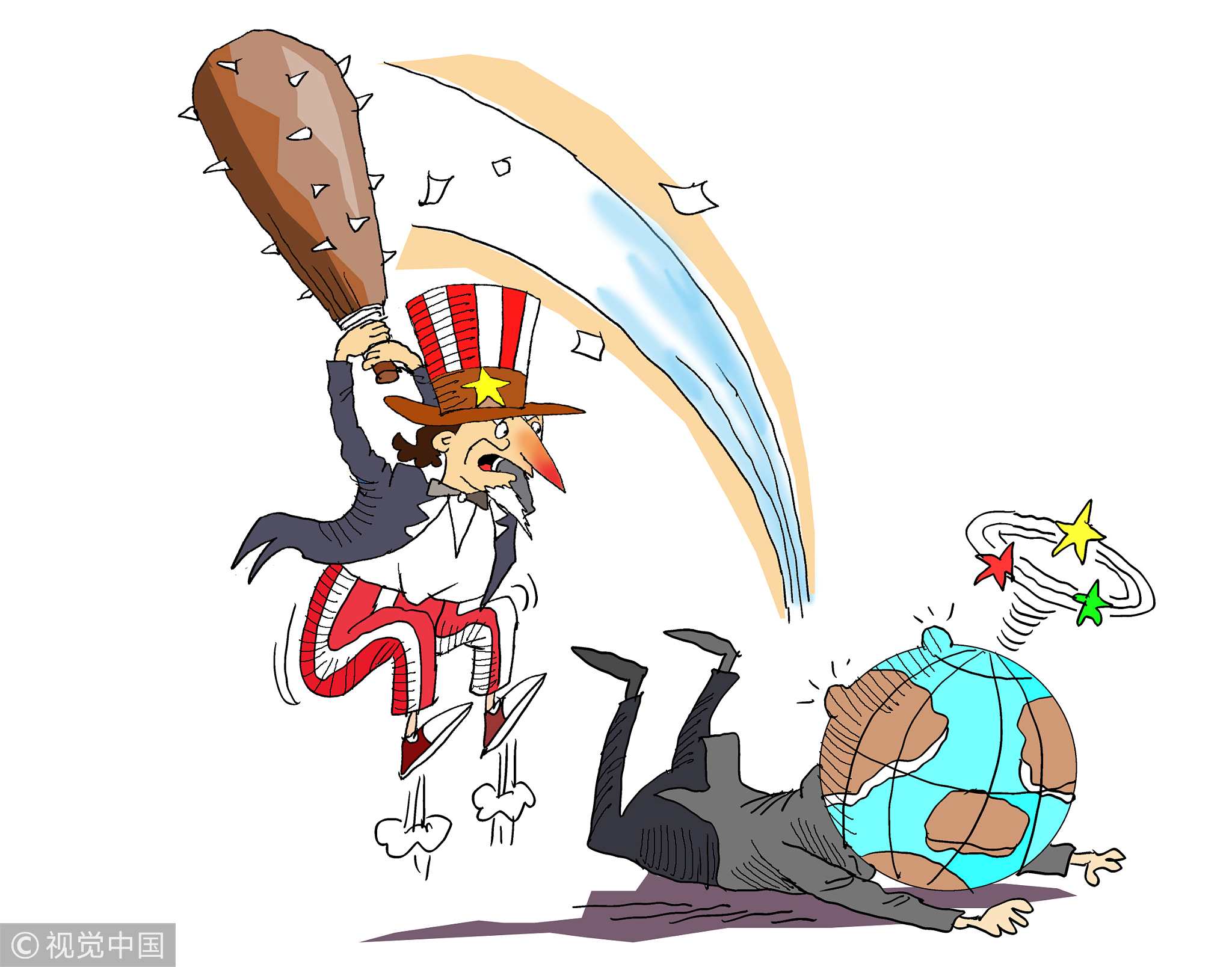
VCG Photo.
VCG Photo.
Economies on both sides of the Atlantic were reeling from a serious recession caused by overcapacity and "beggar-thy-neighbor" trade policies. Rising factory closures and unemployment forced governments to close borders on investment, trade, and migration. The protectionist and populist postures along with spending cuts turned the recession into the "Great Depression".
Fourth, the US and Chinese economies are literally "joined at the hip", China being America's factory and market because the former has a comparative advantage in manufacturing and a huge domestic market to buy much of the US' goods and services.
For example, China is Boeing's biggest customer; it is General Motors most profitable market, explaining why many US Fortune 500 companies set up factories in or outsourced production to China.
Fifth, China is not the culprit that "hallowed out" manufacturing and "stole" jobs as Navarro claimed in his 2012 book, Death by China. Trump's alma mater, the University of Pennsylvania, found US businesses decision to discard manufacturing and focus on services is responsible. Not only did businesses relocate manufacturing abroad, they also automated the remaining semi-skilled jobs without providing sufficient retraining programs for the displaced workers.
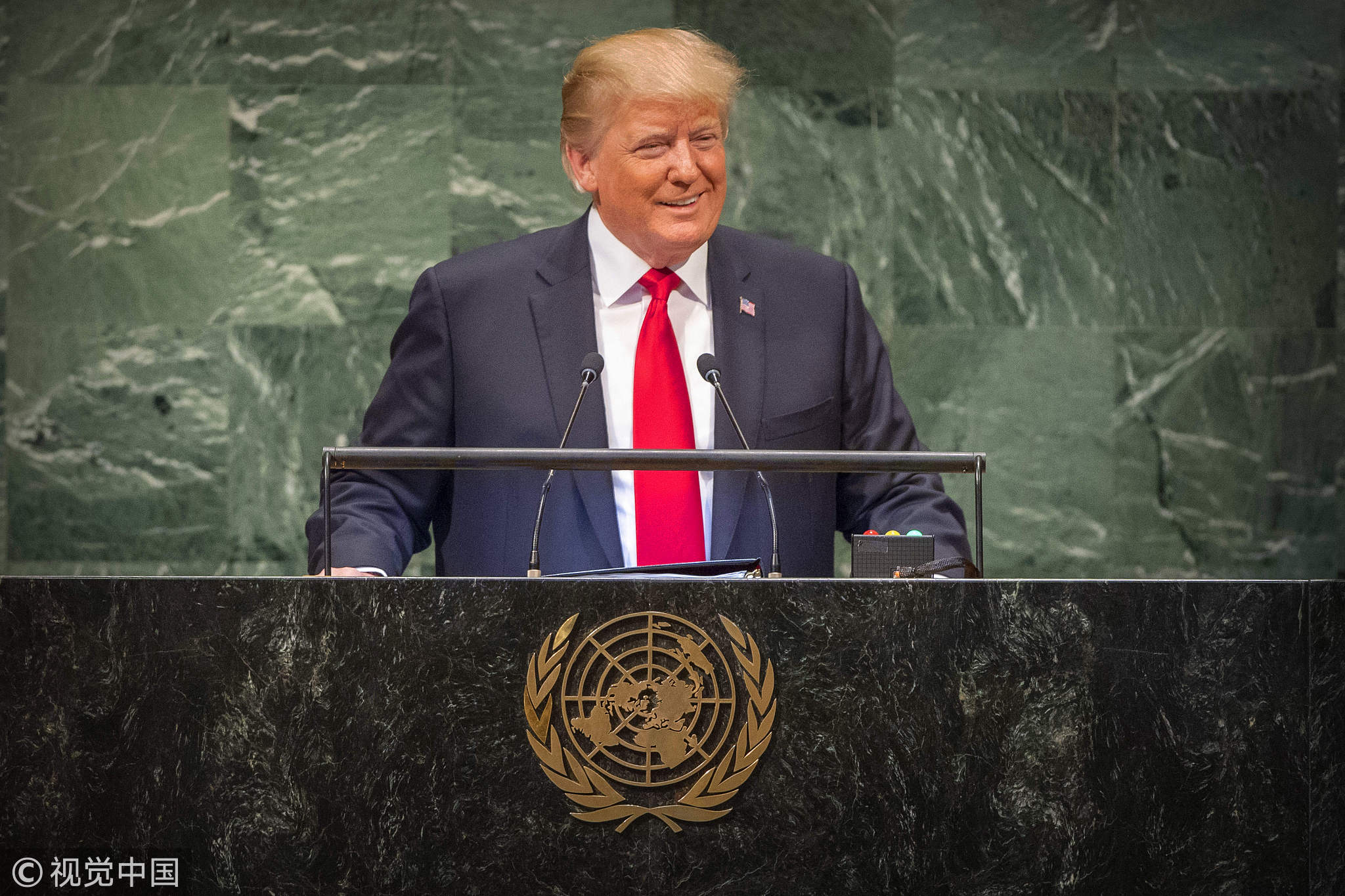
US President Donald Trump addresses the United Nations General Assembly on September 25, 2018, in New York City, NY, USA. /VCG Photo.
US President Donald Trump addresses the United Nations General Assembly on September 25, 2018, in New York City, NY, USA. /VCG Photo.
A comment
Trump's trade war is unnecessary and could cause irreparable damages to the US, Chinese, and world economies. The US-inspired globalization stance has made the world economies increasingly intertwined and interconnected. What's more, Trump's support base may abandon him because the tariffs are an increase in taxes on consumer goods, raising prices that his relatively poor supporters are unable or unwilling to pay. Trump has created a "headache" for the US, China, the world and himself.
Short of a nuclear war, China will not back down on its innovation and independent foreign policy paths. Why should it?
The ball is now in Trump's court.
(If you want to contribute and have specific expertise, please contact us at opinions@cgtn.com.)

SITEMAP
Copyright © 2018 CGTN. Beijing ICP prepared NO.16065310-3
Copyright © 2018 CGTN. Beijing ICP prepared NO.16065310-3